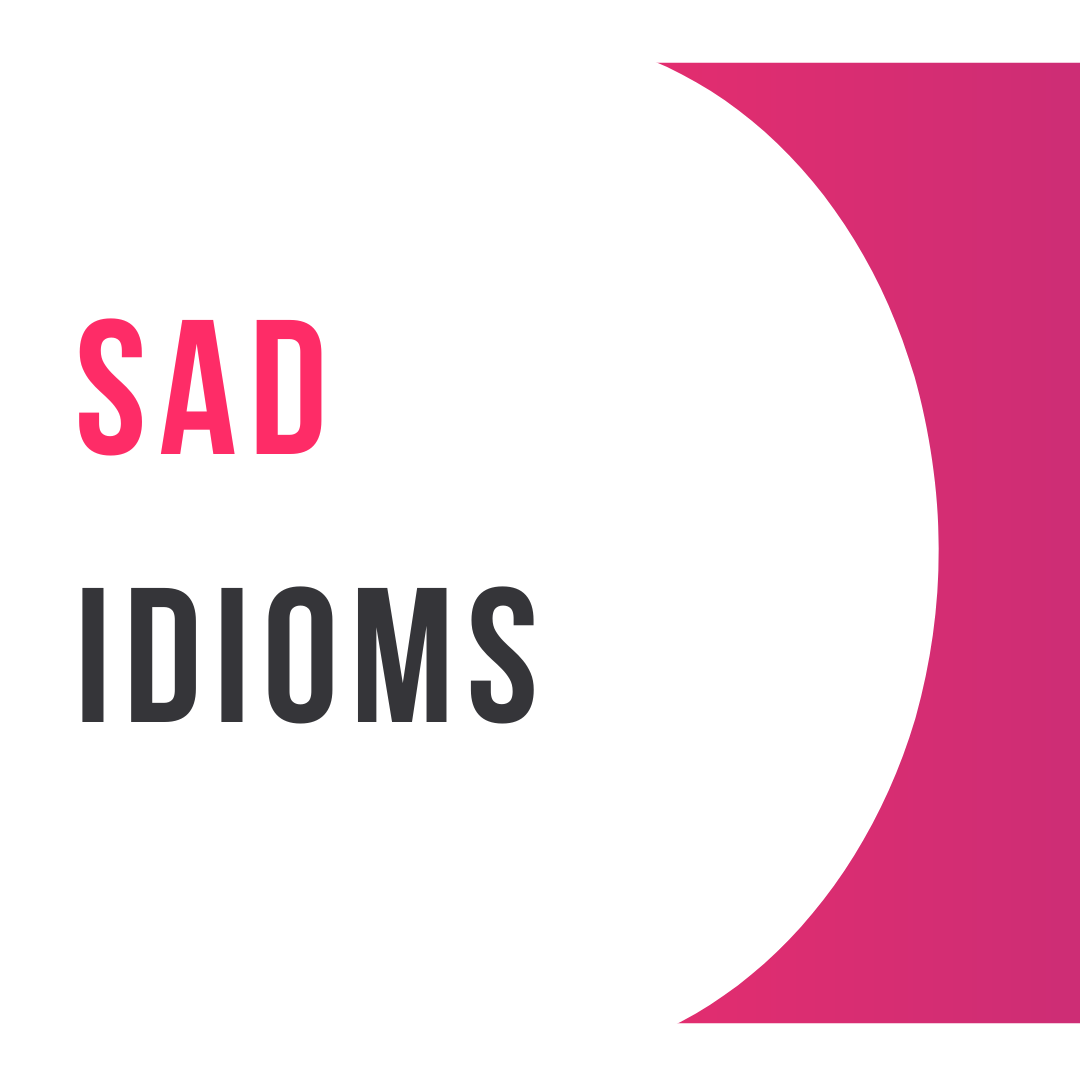Understanding and Using Idioms for Sadness
Idioms are expressions that convey meanings different from the literal definitions of the words used. They add color and depth to language, often capturing complex emotions and situations in a few words. Sadness, a universal human emotion, is frequently expressed through idioms. In this article, we will explore idioms related to sadness, their meanings, and examples of how to use them in sentences. We will also discuss how to effectively express sadness in words.
What is an Idiom for Sadness?
An idiom for sadness is a phrase that conveys feelings of sorrow, melancholy, or disappointment through figurative language. These idioms often draw from cultural, historical, or metaphorical sources to encapsulate the essence of sadness in a memorable and vivid way.
Sad Idioms
Before diving into specific sad idioms, let’s look at a few common expressions that convey sadness:
- “Feeling blue”
- “Down in the dumps”
- “Crying over spilled milk”
- “A heavy heart”
- “Broken-hearted”
Each of these idioms paints a picture of sadness, whether it’s a temporary state or a deeper emotional experience.
5 Idioms on Sadness with Meaning and Example
Below is the list of 5 Idioms on Sadness with Meaning and Example:-
1. Feeling Blue
Meaning: To feel sad or depressed.
Example: After hearing the news of her friend’s accident, Sarah was feeling blue all day.
Explanation: This idiom likely originates from the blue flags flown on ships when a captain or an officer died, symbolizing mourning and sorrow.
2. Down in the Dumps
Meaning: To be in a very low or depressed mood.
Example: After failing his final exams, John was really down in the dumps.
Explanation: This idiom compares a person’s mood to being in a dump or landfill, a place associated with waste and neglect, symbolizing a feeling of being discarded or forgotten.
3. Crying Over Spilled Milk
Meaning: To be upset about something that has already happened and cannot be changed.
Example: There’s no use crying over spilled milk; let’s focus on finding a solution to the problem.
Explanation: This idiom suggests that it’s pointless to be upset about small mistakes or accidents that are in the past and cannot be undone.
4. A Heavy Heart
Meaning: To feel deep sadness or sorrow.
Example: With a heavy heart, she said goodbye to her childhood home.
Explanation: This idiom evokes the physical sensation of a heavy weight in the chest, symbolizing deep emotional burden or grief.
5. Broken-Hearted
Meaning: To be extremely sad, often due to a romantic breakup or other significant loss.
Example: After their long relationship ended, he was completely broken-hearted.
Explanation: This idiom vividly portrays the intense pain and sorrow associated with the end of a meaningful relationship or loss, as if one’s heart is literally broken.
Idioms for Feeling Sad
Idioms are powerful tools for conveying nuanced emotions. In addition to the idioms listed above, here are a few more Idioms for feeling sad:
- “In the doldrums”: Feeling sad and inactive.
- “Lost in a sea of sorrow”: Overwhelmed by sadness.
- “Tears of a clown”: Hiding sadness behind a happy facade.
- “Under a cloud”: Feeling sad or depressed.
- “Heartache”: Deep emotional pain or sadness.
These idioms can be used in various contexts to express different shades of sadness, from mild disappointment to profound grief.
How to Express Sadness in Words
Expressing sadness in words can be challenging, but it’s essential for emotional communication and processing. Here are some tips and examples for how to express sadness in words:
1. Be Honest and Direct
Example: “I feel really sad about what happened.”
2. Use Descriptive Language
Example: “My heart feels heavy, and I can’t shake this feeling of sorrow.”
3. Share Specific Details
Example: “I miss the way things used to be, and it makes me feel incredibly down.”
4. Reflect on the Cause
Example: “I’m feeling blue because I didn’t get the job I really wanted.”
5. Acknowledge the Depth of Emotion
Example: “I’m broken-hearted after the breakup; it’s hard to imagine moving on.”
Using these techniques helps convey the depth and nuance of your emotions, allowing others to understand and empathize with your experience.
Conclusion – Sad Idioms
Idioms are a rich part of the English language, offering a way to convey complex emotions succinctly and vividly. When it comes to expressing sadness, we use Sad idioms like “feeling blue,” “down in the dumps,” “crying over spilled milk,” “a heavy heart,” and “broken-hearted” provide powerful imagery and emotional resonance. Understanding and using these idioms can enhance your communication, allowing you to express sorrow and grief in a more nuanced and impactful way. Additionally, knowing how to articulate sadness in direct, descriptive, and reflective language can help you process and share your emotions more effectively.
